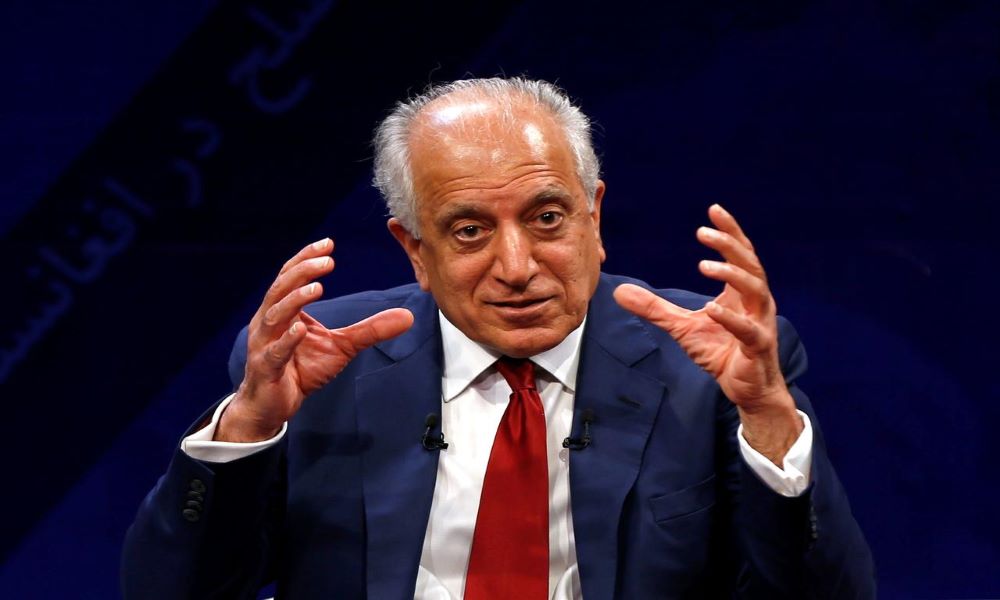Featured
Difficult decisions had to be made to get to talks tables: Khalilzad

US Special Representative for Afghanistan Reconciliation said in order for the United States, the Afghan government and the Taliban to get to this point some very difficult, even heart-wrenching decisions had to be made.
He said in an interview with Al-Jazeera that not only did the United States have to make difficult decisions but so did Afghanistan.
This was in reference to concerns raised over whether the US government has given the Taliban “too much weight” in the intra-Afghan negotiation process – especially in light of the release of 5,000 prisoners.
Recently foreign countries, specifically France and Australia objected to the release of some hardcore prisoners who had been responsible for killing their nationals over the past few years.
But Khalilzad said the US itself had not been too happy about this but that “we [the US] appreciate their expression of unhappiness and empathize with them but we think the goal of making Afghanistan to be more peaceful, for Afghans to come together to end the war, for Afghanistan not to be a threat to the international community and for the burden of Afghanistan to be reduced on the international community,” sacrifices needed to be made.
“Nothing important is easy to achieve, unfortunately. We had to do those tough things, difficult things, heart-wrenching things to get where we are.”
He also said the US was satisfied that the objectives ahead were worth the sacrifices that have been made.
During the interview, he said not only are the current peace talks a historic moment and an opportunity for peace but also a moment of hope and he continually emphasized the fact that Afghans are tired of war – a war that has been ongoing for 40 years.
But questioned on whether the continued attacks by the Taliban – who attribute such information as Afghan government propaganda – “sounded like two parties willing to negotiate”, Khalilzad said he did.
According to him, negotiations are underway in a bid to build trust, to reduce violence and for the two sides to overcome their differences which have led to the conflict.
He stated the negotiations are underway to “find a formula for resolving those differences,” and noted that both sides had different ideologies but that the aim was for them not to change these but rather to find a way to agree on a political formula that’s workable.
“It will be difficult, I don’t anticipate …. that it will be easy and that they will quickly come to an agreement. But the door to intra-Afghan negotiations has been opened.”
He said the United States was very pleased with the role it had played in getting the parties to the talks table but asked whether the basis of the talks was being forced on the Afghan government and whether these talks were truly Afghan-led, Khalilzad stated that until recently it had been US-led but talks were now entirely Afghan-owned and Afghan-led.
He also said: “They [Afghan negotiating team] are not working on a US timeline but I think they are under pressure from their people who want the war to end.”
He said the US will withdraw from the country if all conditions, in accordance with the Doha agreement between the US and the Taliban, are met.
The framework agreed upon with the Taliban has four elements, terrorism assurances, intra-Afghan negotiations, a permanent ceasefire and the withdrawal of international forces, he said adding: “We have agreed that if all of these conditions are met within 14 months we will withdraw.”
He said that if the Taliban does not adhere to the commitments it made to the US “then we are free from our obligation we have made with them.”
He emphasized the agreement was not something made on trust – but instead it was a deal. “You do this, we will do this,” and vice versa, he said without going into any further detail.
But he said he was counting on the Taliban to adhere to their commitment.
According to him, the Taliban negotiating team is a “very empowered” team and one that takes the negotiations seriously and they came prepared for the talks.
The Afghan delegation meanwhile was very broad-based and represented a cross-sector of the population, he said adding that both sides were taking the talks seriously “although there are spoilers inside and out”.
Without naming the “spoilers” Khalilzad said there are people who prefer the status quo as it is – people who profit from the war politically and financially. This he said, was putting “small interests ahead of the broader national interests and that is obviously not acceptable. ”
He also said there are groups that are against the peace process, against Afghans coming together and groups who want to keep the US entangled in the war.
One example he gave was that of Daesh in Afghanistan, which, he said, “is trying to polarize the situation” and in some cases have “tried to pretend” the Taliban carried out some of the worst attacks in the country in a bid to undermine the peace process.
He noted the Afghanistan conflict is quite complex in terms of the number of players but that the US has tried to be active not only with the Afghan sides but also within the region and internationally “to build a consensus for peace in Afghanistan.”
